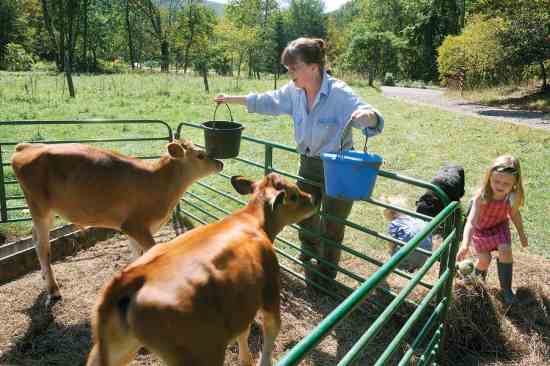In this article, we will be exploring the contrasts between self-sufficient and modern society. We’ll discuss the concept of off-grid living as a way to understand self-sufficiency, and then delve into the differences between self-sufficient and modern societies. By the end, you’ll have a better understanding of these two contrasting lifestyles and their implications in today’s world.
Exploring the Contrasts: Self-Sufficient versus Modern Society
Introduction
In today’s rapidly evolving world, two societies often stand in stark contrast to each other – the self-sufficient society and the modern society. While self-sufficiency refers to the ability to rely on oneself for all of life’s necessities, modern society thrives on technological progress and convenience. This article aims to delve into the complexities of these two contrasting societies, exploring their characteristics, pros and cons, as well as the implications they hold for our lifestyles and quality of life.
Understanding Self-Sufficient Society
Definition of self-sufficiency
Self-sufficiency is a way of life where individuals or communities are able to meet their needs without relying heavily on external resources or support systems. It involves cultivating skills and knowledge to grow food, create shelter, and obtain basic necessities without the need for extensive interaction with the modern world.
Characteristics of a self-sufficient society
A self-sufficient society thrives through sustainable practices such as organic farming, renewable energy generation, and water harvesting. It prioritizes local production and consumption, community cooperation, and strives for minimal waste. Self-sufficiency places importance on self-reliance, self-discipline, and resilience.
Pros and cons of self-sufficient living
The advantages of self-sufficiency include greater control over one’s resources, reduced dependence on fluctuating markets, and a sense of empowerment that comes from being able to sustain oneself. However, self-sufficient living also presents challenges such as the need for extensive knowledge and skills, limited access to certain amenities, and potential isolation from the broader society.
Exploring Modern Society
Definition of modern society
Modern society is characterized by rapid technological advancements, interconnectivity, and a reliance on global supply chains. It embraces convenience, efficiency, and constant innovation. In a modern society, individuals have access to a wide range of goods, services, and information, enabling a higher standard of living in many aspects.
Features of a modern society
Talk about modern amenities, instant communication, global networking (internet, etc.), availability of goods and services.
Advantages and disadvantages of modern society
The benefits of modern society are undeniable, with increased convenience, improved access to education and healthcare, and the ability to connect with people from different parts of the world. However, modern society also faces drawbacks such as over-reliance on technology, environmental degradation, and the fast-paced nature of life, which can lead to stress and mental health issues.
Contrasts between Self-Sufficient and Modern Society
Economic differences
Self-sufficient societies emphasize local production, barter systems, and resource-sharing, fostering a sense of economic self-reliance. In contrast, modern society relies on monetary systems, global markets, and specialization, with economic success heavily influenced by factors like innovation, competition, and economic growth.
Environmental implications
Self-sufficient living significantly reduces ecological footprints, as it prioritizes sustainable practices and minimal waste. Modern society, on the other hand, often leads to resource depletion, pollution, and climate change due to mass production, consumerism, and reliance on non-renewable energy sources.
Social dynamics
Self-sufficient societies are characterized by strong community ties, mutual support, and shared responsibilities. In modern society, individualism and personal pursuits often take precedence over community collaboration, resulting in weakened social connections and a lack of communal identity.
Technological advancements
Self-sufficient societies tend to adopt traditional methods and techniques, focusing on practical skills and knowledge passed down through generations. In contrast, modern society thrives on technological advancements, constantly pushing the boundaries of what is possible and enhancing efficiency in various aspects of life.

Pros and Cons of Self-Sufficiency
Benefits of self-sufficiency
Self-sufficiency provides individuals and communities with a sense of security and independence. It encourages self-discipline, resilience, and resourcefulness, allowing people to lead simpler, environmentally friendly lives. It also promotes a deeper connection with nature and a sense of fulfillment derived from self-reliance.
Challenges of self-sufficiency
Achieving self-sufficiency requires significant effort, time, and knowledge acquisition. It may involve lifestyle changes, including giving up certain conveniences and amenities, and can lead to social isolation if not practiced within a supportive community. Additionally, self-sufficiency may not be feasible for everyone, given the varying environmental and societal constraints.
Impact on personal autonomy
Self-sufficiency empowers individuals by providing them with the ability to make independent decisions and control their own destinies. It reduces reliance on external systems and institutions, allowing for greater freedom in determining one’s way of life.
Advantages and Disadvantages of Modern Society
Benefits of modern society
Modern society offers a wide range of amenities, technological advancements, and global connectivity that greatly enhance convenience and quality of life. It provides access to advanced healthcare, education, entertainment, and employment opportunities. Moreover, modern society encourages individual autonomy and the pursuit of personal goals and aspirations.
Drawbacks of modern society
Despite its numerous advantages, modern society also presents challenges. It engenders a fast-paced, consumer-driven lifestyle that can lead to stress, mental health issues, and a disconnect from nature. Over-reliance on technology and constant connectivity may result in reduced privacy, lack of real human connections, and a dependency on external systems.
Individual autonomy in modern society
While modern society does offer individual autonomy and the freedom to pursue personal goals, it is important to consider the influence of societal norms, economic pressures, and technological dependencies that may restrict true personal freedom. The pursuit of success and material wealth often dictates one’s choices and limits the scope of true individual autonomy.

How Self-Sufficiency Fosters Sustainability
Reducing ecological footprints
By emphasizing sustainable practices, self-sufficiency reduces reliance on environmentally damaging processes and decreases carbon emissions. It encourages regenerative agriculture, waste reduction, and the use of renewable energy sources, contributing to a more sustainable future.
Promoting resource conservation
Self-sufficient living promotes conscious resource consumption and conservation. It encourages individuals to seek local alternatives, reduce waste, recycle, and reuse materials, thereby minimizing the strain on limited resources and reducing the overall impact on the environment.
Importance of self-reliance
Self-sufficiency cultivates a sense of self-reliance and resilience, empowering individuals to become active participants in shaping their lives and the world around them. It fosters a deep appreciation for the value of natural resources and the need for sustainable practices, ultimately promoting long-term environmental and societal wellbeing.
The Role of Technology in Modern Society
Innovations shaping modern society
Modern society thrives on technological innovations that have revolutionized various aspects of life. From the internet to smartphones, automation to artificial intelligence, these advancements have transformed communication, education, transportation, healthcare, and many other domains.
Technological advancements and convenience
Technology offers unprecedented convenience, eliminating geographical barriers, and providing instant access to a vast amount of information, goods, and services. It has transformed industries, creating new avenues for employment, streamlining processes, and enhancing overall efficiency.
Dependency on technology
While technology brings immense benefits, modern society has become increasingly dependent on it. Over-reliance on technology can lead to a loss of essential skills, reduced self-reliance, and vulnerability to system failures or cyber-threats. It is crucial to strike a balance between leveraging technology’s advantages and preserving essential skills and knowledge.

Balancing Self-Sufficiency and Modernity
Diverse ways to integrate self-sufficiency and modernity
The integration of self-sufficiency and modernity requires a flexible approach that takes into account individual circumstances and societal needs. It can involve adopting sustainable practices within modern lifestyles, supporting local businesses, and promoting community resilience. It also entails incorporating traditional knowledge and practices into technological advancements to create sustainable solutions.
Finding a sustainable middle ground
Striking a balance between self-sufficiency and modernity involves finding a sustainable middle ground. It necessitates mindful consumption, responsible resource management, and fostering a sense of community and collaboration while leveraging the benefits of modern amenities and technologies to enhance our lives.
Examples of successful balance
Several communities and individuals have successfully embraced the concept of self-sufficient modernity. Examples include eco-villages that integrate sustainable practices with modern amenities, individuals incorporating renewable energy sources into their homes, and technological advancements that promote environmental conservation and awareness.
Implications for Lifestyle and Quality of Life
Impact on personal freedom and independence
Self-sufficiency offers individuals a sense of personal freedom and independence, allowing them to determine their own paths and make decisions that align with their values. It enables people to escape the pressures of consumerism, prioritize meaningful relationships, and live simpler, more intentional lives.
Relationship with nature and the environment
Self-sufficient living nurtures a deep connection with nature and the environment. It encourages individuals to appreciate and protect natural resources, fostering a more sustainable and ecologically responsible way of life. Modern society, in contrast, often divorces individuals from nature, leading to a decreased understanding of the interdependence between humans and the environment.
Access to amenities and convenience
Modern society provides unparalleled access to amenities and conveniences, allowing individuals to enjoy a higher standard of living. However, self-sufficient living may require sacrifices in terms of access to certain amenities and convenience. It is essential to consider personal priorities and values when deciding between the two ways of life.

Social and Cultural Influences on Society
Cultural norms in self-sufficient societies
Self-sufficient societies prioritize community collaboration, mutual support, and shared responsibilities. Cultural norms revolve around sustainability, resilience, and cooperation, fostering strong community bonds and a collective sense of purpose.
Changes in societal values
Modern society often places a higher value on individualism, personal success, and material wealth. This shift in societal values has led to a decline in community connections, increased competition, and a reduced sense of belonging.
Role of community and social connections
Self-sufficient societies rely heavily on strong community ties and social connections. They recognize the importance of collective efforts for long-term sustainability and overall wellbeing. In contrast, modern society often emphasizes individual achievement and personal pursuits, leading to a potential decline in social connections and community engagement.
Evaluating Long-term Viability
Sustainability of self-sufficiency
The long-term viability of self-sufficiency depends on various factors, including the availability of resources, environmental conditions, and societal support. Adaptability, resilience, and continuous learning are crucial for self-sufficient societies to thrive in changing circumstances.
Potential challenges for modern society
Modern society faces several challenges, including environmental degradation, resource depletion, and social inequality. As technological advancements continue to shape our lives, it is essential to address these challenges and find sustainable solutions to ensure the long-term viability of modern societies.
Adapting to future needs and changes
Both self-sufficiency and modern society need to adapt to future needs and changes to ensure sustainability. This involves reevaluating societal norms, investing in renewable energy sources, fostering local production and consumption, promoting sustainable practices, and encouraging innovation that aligns with long-term social and environmental goals.
Conclusion
Exploring the contrasts between self-sufficient and modern society allows us to understand the different approaches to living in today’s world. While self-sufficiency prioritizes sustainable practices, self-reliance, and community cooperation, modern society thrives on convenience, technological advancements, and global connectivity. Finding a balance between the two approaches is crucial to create a sustainable future that combines the best elements of both societies. By leveraging the benefits of modern amenities while integrating self-sufficiency principles, we can foster a society that values community, prioritizes environmental stewardship, and promotes individual autonomy and wellbeing.




